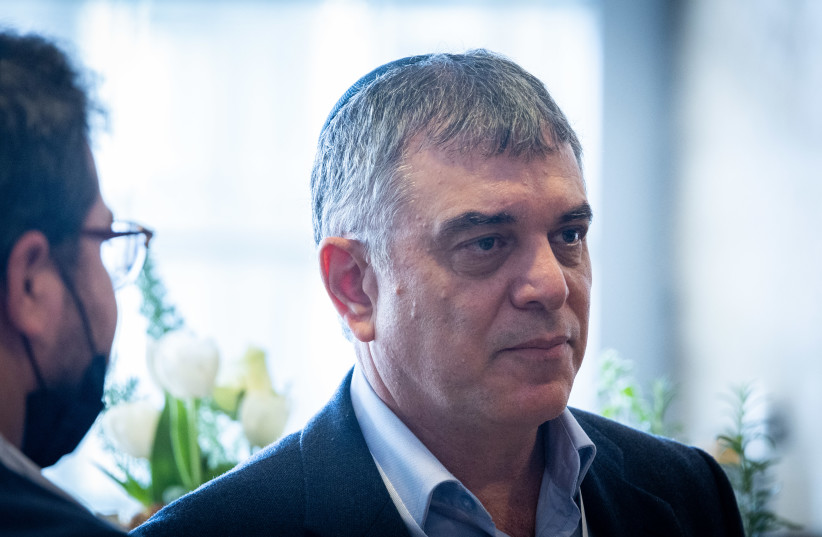The public corruption trial of prime minister designate Benjamin Netanyahu continued on Tuesday with the testimony of former deputy Communications Ministry director-general Haran Levaot, whose testimony cut to the heart of the prosecution’s regulatory side of the Bezeq-Walla media bribery affair.
Levaot’s testimony before the Jerusalem District Court certainly supported the state prosecution’s narrative that Netanyahu, and Shlomo Filber acting on his behalf as the ministry’s director-general, tried to make certain policy moves in favor of Bezeq and Walla owner Shaul Elovitch.
However, if Netanyahu is eventually acquitted on the bribery charge at the heart of the alleged scheme of positive media coverage for positive government policy treatment, Levaot’s testimony, and what it was missing, may be looked back on as a turning point.
What will Haran Levaot testify about at Netanyahu's trial?
Levaot was leading efforts to force Bezeq to accept a number of reforms and was trying to slow or block an allegedly problematic Bezeq-YES merger, along with a majority of the ministry’s other professional level staff.
Filber has testified that even after Netanyahu fired his predecessor Avi Berger to clear the way for Filber to move policy in the direction of Bezeq, Levaot and most of the expert apolitical level at the ministry still tried to slow or hold up Filber’s pro-Bezeq efforts.

Essentially, what Levaot’s testimony produced on Tuesday was a narrative that he had told Filber that it was “desirable,” but not “life and death” critical to condition the Bezeq-YES merger on the reforms in question.
This could be highly problematic for the prosecution because it aids Netanyahu and Filber’s narratives that the moves they made toward Bezeq, even if not supported by a majority of the ministry’s expert level, were not patently an unreasonable policy.
If they were not extremely unreasonable, and just off of the majority voice, is that enough for bribery?
Even Judge Rivkah Friedman-Feldman interjected – “he said that it was desirable, but not obligatory” – in summarizing Levaot’s testimony when prosecutor Yehudit Tirosh sought to maneuver him into a more anti-Filber answer than he was giving.
Of course, this does not mean Netanyahu is off the hook.
A variety of other evidence could show that his actions and motivations were criminal, even if the specific policy in question was only questionable, and not illegal.
For example, this past March, Filber testified that Netanyahu called him in 2016 to yell at him for not having fired Levaot for slowing the moves desired by Bezeq.
He said that the prime minister designate called him on a Saturday night screaming, “Who is this Haran? What is this Haran? What is he doing there? All kinds of sentences which were not clear.”
"Who is this Haran? What is this Haran? What is he doing there? All kinds of sentences which were not clear."
Benjamin Netanyahu (supposedly)
The prosecution was presenting Netanyahu’s 2016 call to Filber as evidence that even after their initial meeting in June 2015, in which the prime minister designate allegedly ordered him to favor Bezeq in government policy for the media bribery scheme, Netanyahu took strong actions going forward to ensure that Filber carried out his orders.
Testifying in court, Filber said that he had replied to Netanyahu: “I won’t fire him, I will deal with it.”
Next, Filber explained that, “Three months before, I had wanted not to extend Haran Levaot’s contract. We disagreed about all professional issues... I was told by legal officials that I need to speak to the government civil service office. I told the civil service office that I have a deputy director-general who acts against my policies.”
They responded to Filber, “His contract gets renewed automatically. If you do not want to renew it, manufacture a file of violations against him.”
At this point, Filber understood it would be difficult to fire Levaot, which was why he told Netanyahu he would try to handle Levaot’s opposition in some other way besides firing him.
Netanyahu personally intervening to accost his former campaign chief turned ministry director-general (and now state’s witness) on behalf of Bezeq in favor of questionable policies could still help lead to a bribery conviction.
But the outlook is certainly hazier for the prosecution after Tuesday, especially since this is only the second media bribery case ever to go to trial – meaning the entire playing field is uncharted territory.
